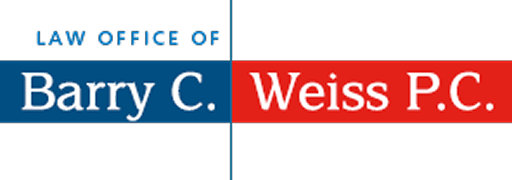212.785.1300
Nassau County Assault Defense
What happens if you were involved in an altercation in which you were trying to defend yourself or in which the other person provoked you to have a fight? These situations can represent a legal gray area which is particularly problematic if you are currently facing assault charges in New York. One of the most common crimes charged in New York is assault and it can range in severity from a misdemeanor all the way up to a felony.
Whether you are charged with a misdemeanor or felony assault, depends upon the type of weapon if one was used and the severity of the injuries to the victim.
There’s no doubt the you will have many questions about how to proceed with your case if you have been charged with assault. Reacting an anger and trying to convince the police officers that the incident was not your fault is a poor way to approach this situation. Retaining an experienced criminal defender, however, allows you to take advantage of someone with the skills and assertive nature to represent you in court. Assault charges are a serious matter and should always be handled only by an experienced attorney in Nassau County.
Assault Types in New York
There are several different categories of assault in Brooklyn, the Bronx, and Queens. These include:
- Gang assault in the first degree. A class B felony with a maximum of 25 years in prison.
- Gang assault in the second degree. A class C felony carrying up to 15 years in prison.
- Assault in the first degree. A felony with a maximum sentence of 25 years in prison.
- Assault in the second degree. A class D felony with a maximum prison time of 7 years.
- Assault in the third degree. A class A misdemeanor with a maximum jail sentence of one year.
Other sentences may include a fine or three years’ probation. The type of assault charges you are facing will likely depend on whether or not the victim suffered severe injuries and whether or not a weapon was used. There are defenses to an assault charge and your best chance to capture these and fight it in court is to hire a criminal defender who has the necessary experience and tenacity to pursue your claim. The most common type of defense to an assault charge is self-defense.
This may also be referred to as justification throughout the state. It is the responsibility of your Nassau County assault defense lawyer to raise these concerns of justification and from that point, the district attorney bears the burden of proof to illustrate beyond a reasonable doubt that the accused was not justified in his or her actions. Self-defense law mandates that an individual can use physical force upon another when he or she believes that it is reasonably necessary to defend themselves from imminent or unlawful physical force by another individual. The crux of these legal issues rests on the term “reasonably believes”. This is a two-part test to determine whether or not reasonable belief existed and that the accused was justified in protecting himself in a Nassau County assault case.
First, the accused person must have believed that the other party was about to use or was already using physical force against the accused and that the defendant’s own use of force was necessary to stop this. The second component of this is the reasonable person evaluation. This involves looking at whether or not a reasonable individual in the defendant’s same position would have those same beliefs that he or she was about to be attacked or was in the process of being attacked and must have acted in self-defense to stop this behavior.
Self-defense is typically not justified when the accused individual was the initial aggressor, when the physical force used by the accused was the product of a combat by agreement, when the conduct was provoked by the accused with the purpose of causing physical injury. Defensing yourself against aggression from another person can be a challenging situation and it can be even more difficult to illustrate in court that you were justified in doing so. However, consulting with an experienced attorney gives you the best possible chance to defend these charges.














